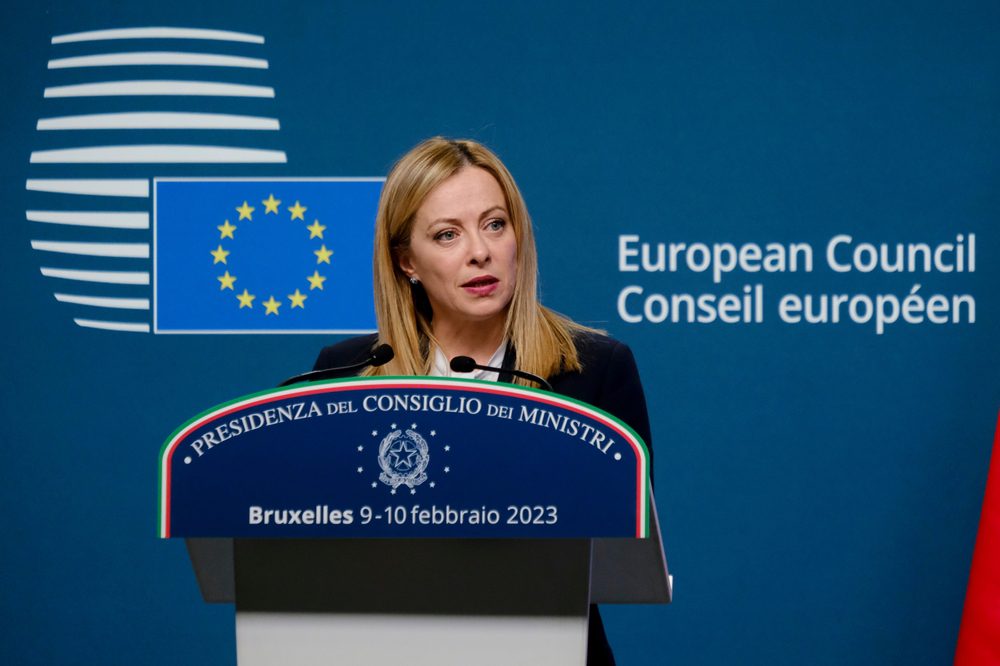
Italian PM Giorgia Meloni holds a press conference in Brussels on February 10th.
The redistribution of migrants throughout the EU countries “has never been my priority,” said conservative Italian Prime Minister Giorgia Meloni at a press conference after the European Council summit’s conclusion on Friday, February 10th, reported by Euractiv.
At the summit, migration was one of the key issues as EU leaders agreed to step up repatriation efforts and protect external borders, with the European Commission ‘de facto’ footing the bill for border fences and patrol personnel.
Italy has strongly backed the migrant quota system for years because of the disproportionately high number of refugees arriving at its coasts. But the Italian premier admitted that “focusing on the issue of redistribution instead of the external dimension has limited effectiveness.”
Diplomatic battles around Brussels’ initial plan to impose a compulsory redistribution quota has been ongoing for years, primarily driven by the objections of Central European member states. Meant as a way out of the stand-off, an agreement was reached in June 2022, in which the compulsory quota was replaced by a so-called Voluntary Solidarity Mechanism.
But expecting member states to carry out their voluntary relocations does not appear to be effective so far. “Redistribution never worked,” said Meloni at the press conference. “In Italy, less than 200 out of 8,000 migrants were redistributed in 8 months.”
In primis sul tema dei migranti, dove è stato finalmente messo nero su bianco un principio molto importante che cambierà l’approccio: l'immigrazione è un problema Ue e ha bisogno di una risposta Ue.
— Giorgia Meloni (@GiorgiaMeloni) February 10, 2023
Yet, the Italian prime minister described the summit’s conclusion regarding migration as a success, saying that it was the first time the bloc agreed to face the challenge at the “EU level,” especially regarding external border protection, including the use of physical barriers and surveillance equipment. The agreements reached were celebrated by countries that found themselves on the main migration paths in Eastern and Southern Europe in 2015, such as Greece, Bulgaria, and Lithuania—as well as Austria, which led the negotiation efforts in the council.
The issue of relocation stepped into the forefront of Friday’s new migration document as well, but this time, it does not focus on internal redistribution within the EU, but on transporting migrants to third countries. The EU seeks to broker more agreements with outside countries of this sort in the future, but right now it is Italy that is leading the efforts.
Last month, Italian government officials visited North Africa to establish partnerships to mitigate illegal migration across the Mediterranean, particularly with Egypt, Libya, and Algeria. One agreement that came under fire from the Council of Europe over human rights concerns contains the relocation of rejected asylum seekers into Libya.
Nonetheless, based on the results of last week’s summit, more initiatives that involve the relocation of migrants to third-party countries are likely to emerge, as the Brussels redistribution scheme—whether based on compulsory quotas or voluntary humanitarianism—no longer seems to appeal to the majority of EU member states.
